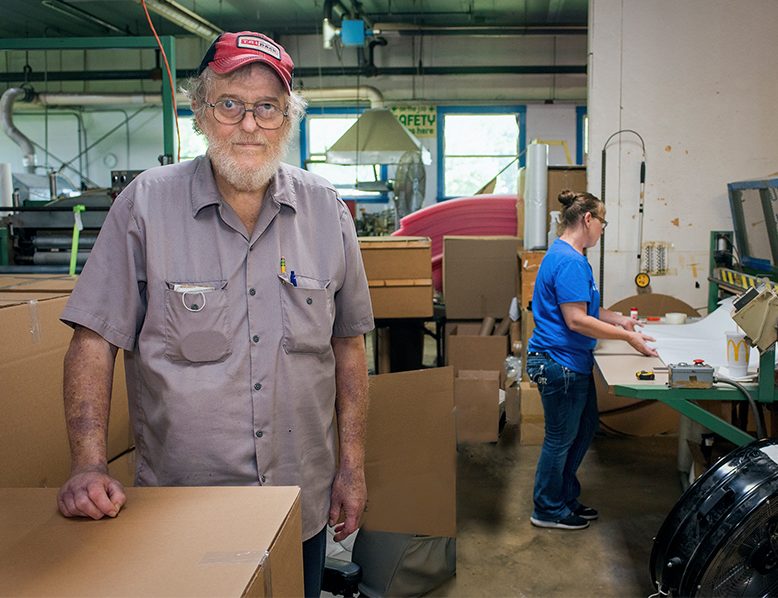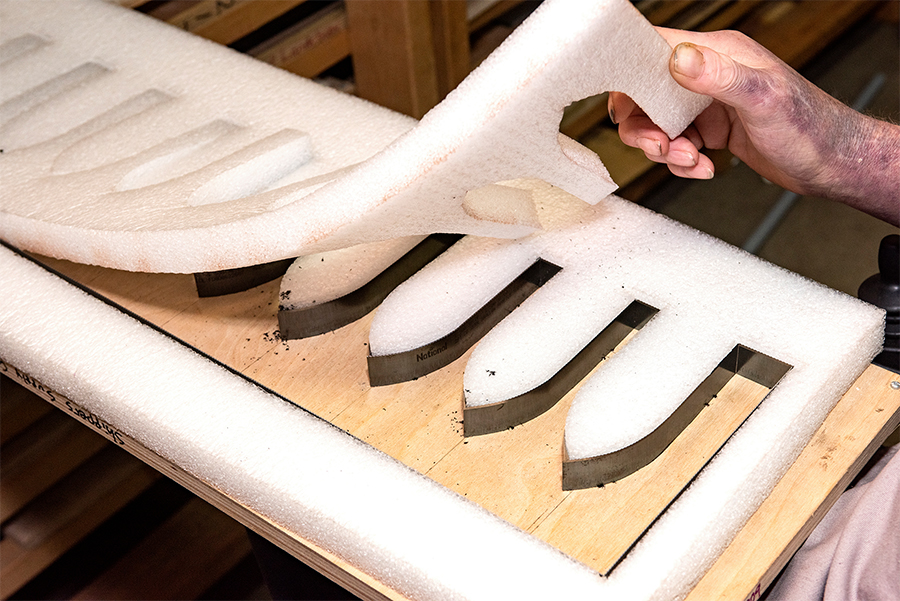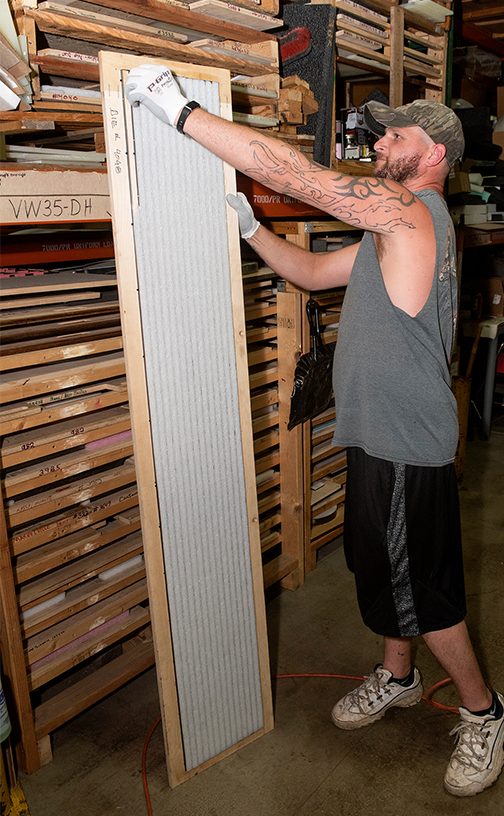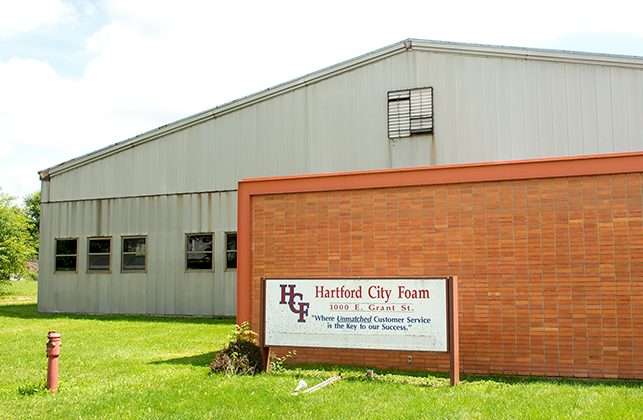“By Skillful or Artful Contrivance”
By: Stephen McCollum
He doesn’t have a job title, or a computer at home. He took the call for the interview on an old desktop Western Electric model phone. He says he’s not really traveled much outside Hartford City beyond the six weeks in Europe the summer before his senior year at Ball State University.
Yet Mark Cope has crafted a body of work in his home town that rivals any story of entrepreneurship, loss, adaptation, and recovery no matter how exotic the locale or how much money is involved.
His professional life began in high school with a woodworking business, Marco Custom Wood Products, hatched in his home basement in 1967. His skill, ingenuity, and enterprise would carry it through until 2006.

“I learned to run a wood lathe in high school, so I started turning candlesticks and eventually began supplying a local giftware company,” Cope says. The giftware owners, experienced in the local glassware business, began selling glass trays and they contracted Cope to make walnut handles.
“I lost count, but I believe by the time it was over I’d made nearly a quarter million pairs!” Ironically, Cope did not wind up with a single one of those trays, nor can he find a photo of one. So, if you’re the owner of a glass tray with walnut handles from the Dacra Glass Company, you are linked to his earliest success.
Cope’s father, Ralph, was instrumental in his early aptitude for getting his hands to do what his head told him would work.
“He was very clever and out of economic necessity learned how to keep all the household appliances working,” recalls Cope. “I always said he could even fix a battery. I just watched and learned. He was fastidious, things had to be done a certain way. He really drilled me on that.”
Like father, like son. Ralph Cope also was a woodworker in his spare time from managing the local Central Indiana Gas Company office.

Although his degree is in education and he did teach briefly, including a year at Ivy Tech in Muncie, here’s the description in the Random House Webster’s Unabridged Dictionary that most aptly describes a lifetime spent as a free-lance engineer: “to arrange, manage, or carry through by skillful or artful contrivance.”
But don’t just take Webster’s word. Rusty Mitchell, CEO of Hartford City Foam, hired Cope in 2007, not long after Cope’s business closed.
“I didn’t have a defined position at the time we first met,” Mitchell says. “But after I talked to Mark a while I was just taken by how much common sense and what spot-on answers he gave to a volley of questions I threw at him.
“Let’s just say he is the most capable, dependable, imaginative, and innovative person on a daily basis I’ve ever been associated with,’ concludes Mitchell. “He can do everything from fix a broken toilet to building complicated machinery. I haven’t found anything yet at Hartford City Foam that he can’t do.”

Most people are aware of just how much industry, especially manufacturing, has been lost in small town America. But Cope is a walking encyclopedia of the way it used to be and credits the network of former business owners, most from his father’s generation, who mentored him.
“We had so many businesses, many of which were customers of mine, but also led by people who were great sources of information and wisdom—John Jackson at Hartford Canning Company, Robert Hodges at Sinclair Glass, Bill Schantz and Don McConey at Hartford Concrete Products, Worth Gadbury at Willman Lumber, Ed Young at Hartford Sawmill, Pat Welsh at Hartford Tool & Die, and Cy Place at Hartford Novelty.”
“Sometimes I would just show up and ask if they had 10 minutes to talk about something I was trying to figure out” he recalls. “There are days now when I wish I could still call on them.”
Cope’s skill as an innovator or project designer might best be appreciated through comparison. He is the mechanic whose work happens in the shadows of the garage while the driver of the race car, even the pit crew, get all the notoriety. Cope is to Hartford City Foam what the under-the-hood NASCAR mechanic is to the glossy package—the race car.
“We build some machines, build them up out of old frames, sometimes strip everything off and put them back together a different way,” Cope says.

There are many people, from owner Rusty Mitchell to the highly qualified and competent work force he has recruited, who deserve credit for the fact that Hartford City Foam is still thriving after so many other businesses have closed. But Mark Cope’s ability to take apart and put back together for a new purpose, his eye for innovative approaches to constantly emerging needs, has brought him somewhat full circle.
“I grew up a block-and-a-half from here, played in the factory yard—it’s right on a railroad track and on the other side is a creek,” recalls the man with no job title. “I remember when this was a newer place with newer equipment.”
He may not have a job title, but he signs off with a humble but brilliant marketing slogan.
“It’s just making stuff.”





Wonderful story.
We wondered what happened to Mark. Thank you for this story.